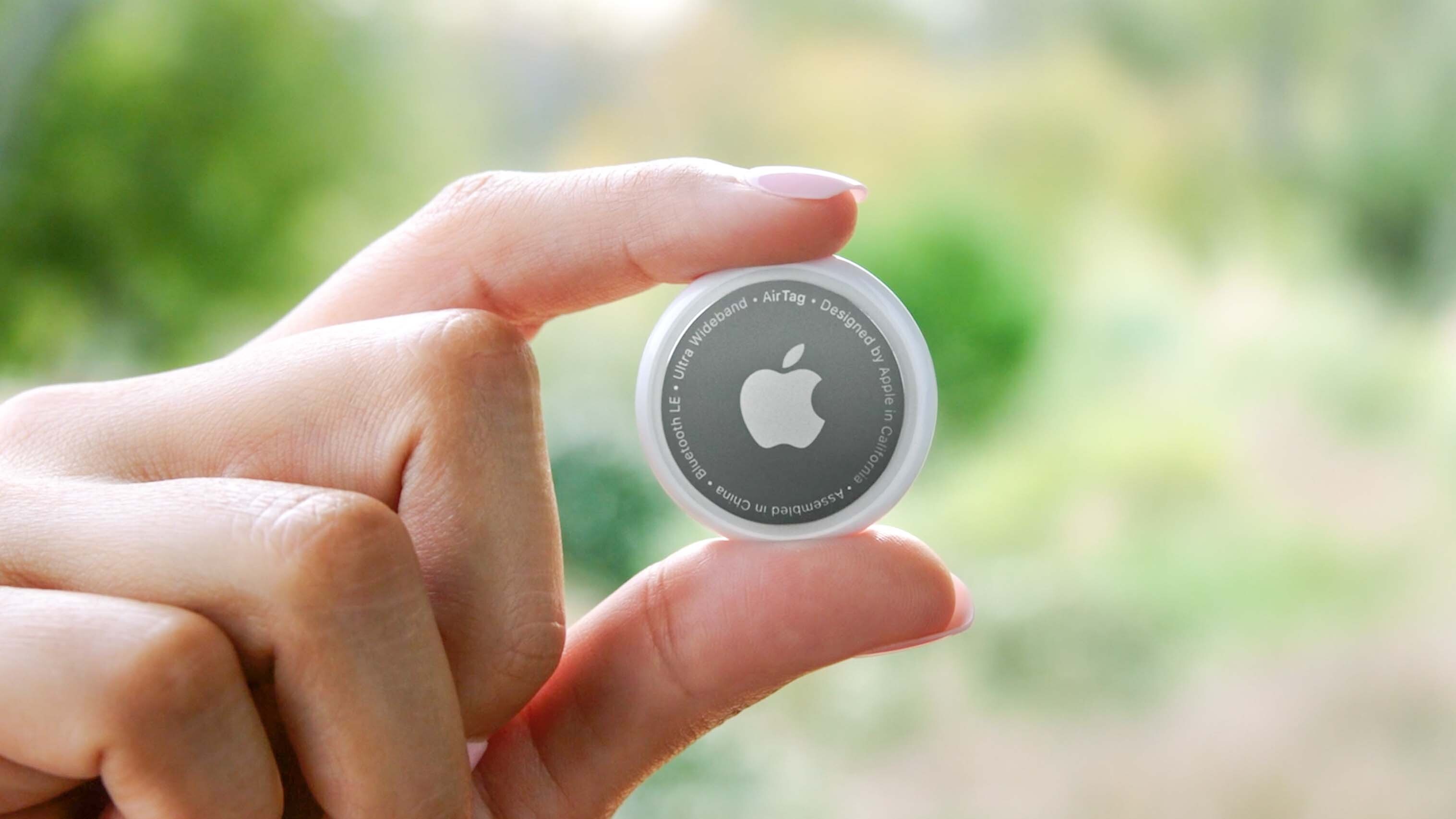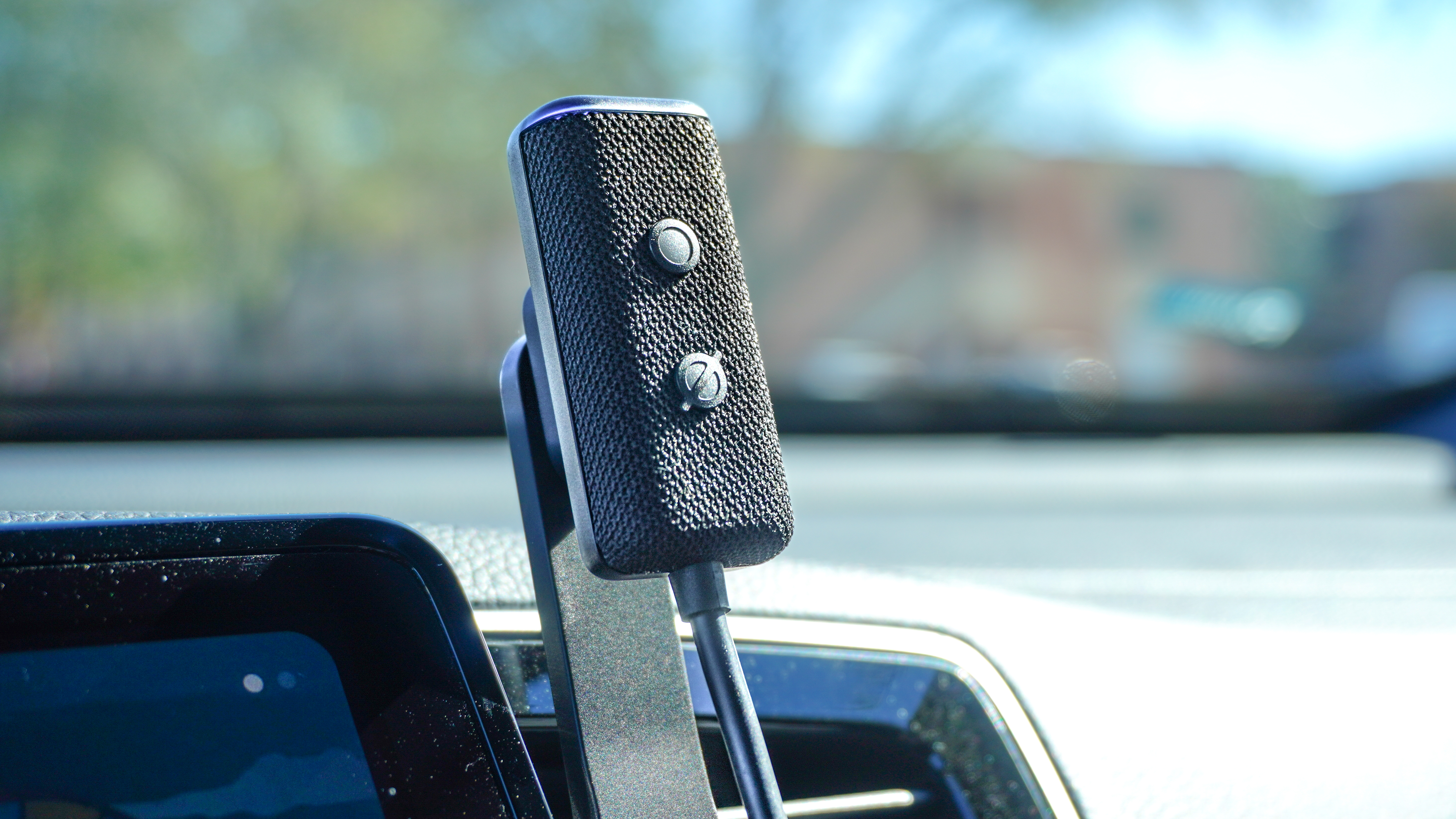It’s about time Google added AirTag anti-stalking features to Android — and I/O 2023 is the perfect place to do it
Google needs to step up to deal with its own anti-stalking tech

Ever since Apple AirTags launched, there have been a shockingly high number of reports of those coin-sized trackers being used for stalking. While Apple has done a number of things to counter this disturbing trend, Android users have been virtually ignored by the company.
It’s about time Google stepped in to fix that problem. Google I/O 2023, which will no doubt feature a number of major Android 14 announcements, is the perfect opportunity to do just that. Especially if the rumors that Google is developing its own “Grogu” tracking tags end up being proven true.
Android users have little defence against AirTag stalking
While tracking tags aren’t exclusive to Apple by any means, the very nature of AirTags makes them much more dangerous in the wrong hands. A Tile, for example, can only be found if another person with the Tile app passes by, whereas AirTags are part of Apple’s Find My network. That means any passing iPhone can ping an AirTag and narrow down its location.
Needless to say there are a lot more people with iPhones than Tiles, which makes them much easier to track. Even for people with perfectly innocent intentions, the scale of the Find My network is a selling point.
To its credit, Apple has done a lot to ensure AirTags can not be used for stalking. iPhones will automatically detect and alert you to any rogue AirTags in the vicinity, with the Find My app letting you track it down via sound or the ultra-wideband Precision Tracking feature. Manual searches are also an option, should you feel the need.
The problem is these features are central to the Find My app, which isn’t available on Android. Apple does have a tracker detection app on Google Play, but it only offers manual scanning — forcing users to be proactive. Third party apps like AirGuard do offer automatic tracker detection, but still requires users to be proactive enough to install it first.
So it’s about time Google stepped up to ensure its users are properly protected.
Get instant access to breaking news, the hottest reviews, great deals and helpful tips.
Google needs to hustle to ensure Android has anti-stalker tech
We first heard rumors that Google was working on its own tracker detection feature last March, after users spotted references to it in a Google Play Services update. Phrases like “unfamiliar tag detected notification” and “unfamiliar device alerts” along with mentions of “Tile tag” and “ATag”.
Since then we’ve heard nothing else of substance, be it directly from Google or through more unofficial channels. Android 13’s launch came and went without so much of a mention of tracking tags, and there’s been no mention of it in the first release of the Android 14 beta.
The closest we’ve got to hearing anything is the rumor that Google could launch its own AirTag rivals in the near future. But if or when those trackers might arrive. Meanwhile, AirTag stalking is still very much a problem. Reports aren’t featured in the news as much as they once were, but it’s a problem that hasn’t gone away — even with all the safety features Apple has introduced.
AirTags have been on the market since April 2021, and it was almost immediately apparent that the anti-stalking features Apple implemented at launch weren’t good enough. If that wasn’t already a red flag, the fact that Apple’s improvements and methods were almost universally iPhone-centric should have prompted Google to figure something out.
There are no doubt various complexities involved with adding a system-level feature like this to Android — certainly more than updating an existing standalone app. Likewise, the nature of Android updates means that it’s going to take a long time for any new features to roll out to existing devices.
But two years is a long time, and it’s about time Google showed that if Apple won’t step up to safeguard Android users from its products, Google will.
Bottom Line
It’s impossible to say how many people are affected by AirTag stalking, let alone how many of them are put at additional risk simply because they own an Android phone. But one victim is one too many, and measures need to be in place to ensure these kinds of products are much, much harder to exploit.
Unfortunately Apple has shown time and again that it doesn’t care about people who don’t buy its products. Whether that’s as mundane as not offering Apple TV Plus on Android phones, or straight up refusing to improve the security of text messaging between both platforms.
Google I/O 2023 is the perfect opportunity to announce new measures that protect users from tracker stalking — whether it’s from an AirTag, Tile, or some other rival product. Even if that feature won’t actually arrive until Android 14 later this year, it’s enough for Google to show it’s doing something about the problem. Alternatively if Google still has nothing to show us after two years of stalking reports, then we’re going to have to question where its priorities really lie.
More from Tom's Guide
- How to download Android 14 beta
- The one thing Google Pixel Fold needs to beat Galaxy Z Fold 5
- 17 hidden Android features you should be using

Tom is the Tom's Guide's UK Phones Editor, tackling the latest smartphone news and vocally expressing his opinions about upcoming features or changes. It's long way from his days as editor of Gizmodo UK, when pretty much everything was on the table. He’s usually found trying to squeeze another giant Lego set onto the shelf, draining very large cups of coffee, or complaining about how terrible his Smart TV is.
